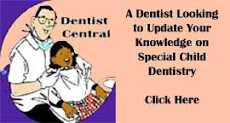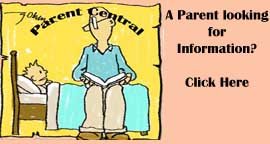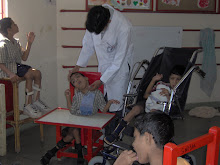
Dr Sharat Chandra Pani
In the last post we saw how the neuromuscular status of children with Cerebral Palsy (CP) can influence oral hygiene. In today's post we answer some of the questions we have received from parents regarding dental needs of children with CP.
My child is two years old and has cerebral palsy and West Syndrome. I've been worried about his oral hygiene. He often wakes in the night and I give him cerelac. He has a little and sleeps off. I give him water afterwards but I'm sure that doesn't wash down everything. His teeth have become discoloured and he seems to have cavities too. Sometimes when I try to wipe his teeth with a wet gauze, he gets nauseous. He has hypersensitivity around the mouth area and cries while eating too. What I can do for him?
EK Mumbai
This question addressess several commonly faced concerns of parents of children with CP. Firstly, the concern about oral hygeine. The oral hygiene of children with CP is bound to be poor when compared to children without CP. Having accepted this fact parents must decide how best to prevent further damage to the teeth.
The epileptic seizures that accompany West syndrome, often mean that the child has been on anti-epileptic syrups since infancy. The importance of cleaning the mouth after intake of the syrup cannot be overemphasized. These syrups are a high source of sugar and their effect on the teeth can be far more deleterious than any sugar containing food.
I would not recommend continuing with cerelac beyond the first year of life. While it is an easy to prepare meal and children often like the taste, parents must remember that it is also a source of hidden sugar which can further compromise the child's dental health. An alternate source of nutrition such as ragi porridge would definitely reduce your child's sugar exposure.
Hypersensitivity of the oral mucosa is a problem faced by many children with CP. But you must remember that touching the palate, or oral mucous membrane is not necessary in order to clean the teeth. Furthermore, parents must learn to differentiate between a mild irritation, and a gagging or choking. Most children with CP will exhibit some amount of irritation, and you must persist with cleaning the teeth. If however the child is gagging or choking, then you may have to explore alternatives to brushing that will cause less irritation.
Lastly I would recommend an initial check up visit with your Pediatric Dentist. Some if not all the caries in your child's mouth are likely to be in the initial stage. Therefore a simple restoration will save your child from a lot of discomfort. Some of the lesions would also be reversible, and i would recommend an application of a topical fluoride varnish to prevent further decay.
My son is 12 years old and has Spastic Diplegia, his teeth seem forwardly placed. I would like to get braces for my son's teeth. Is this advisable?
SS Bangalore
Children with Cerebral palsy tend to have proclined teeth and constricted dental arches. The cause for this is usually the force exerted by the facial muscles. Imagine a tight muscle that is continuously pinching your child's face; the result is a set of teeth that are set in a narrow arch and forwardly placed. There is no contraindication for orthodontic treatment. Orthodontic treatment or braces will definitely set the teeth straight, but they won't correct the forces that the muscles on your son's face are exerting. While you will definitely see a better alignment of the teeth after orthodontic treatment, the narrow arch and the general facial features that accompany Spastic Cerebral Palsy are more difficult to treat. Even if they are treated, there is every possiblity that the muscle forces on the teeth will cause a relapse of the original state. My take on Orthodontic treatment for children with CP is this; go for it if you want to correct the alignment of the teeth, but don't expect miracles.








No comments:
Post a Comment